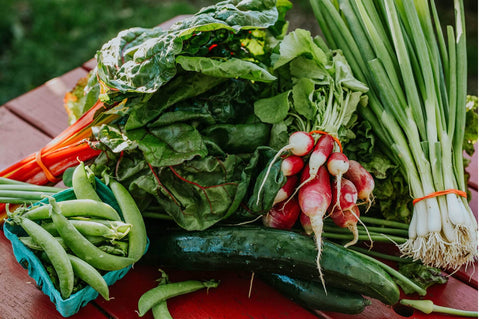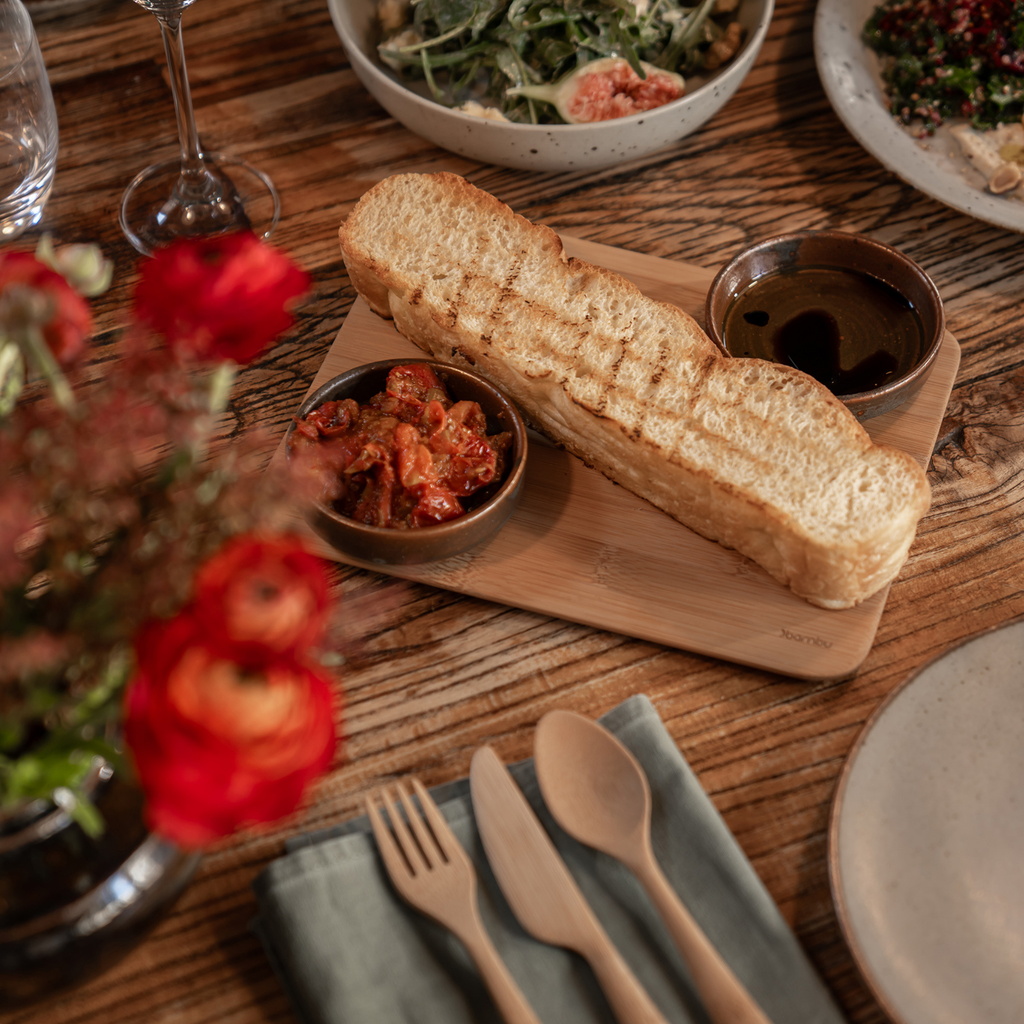“Our hope is to not be needed,” says AJ McCreary– activist, mother, and the founder and executive director of Equitable Giving Circle, a non-profit organization that provides “no strings attached” support to BIPOC people. Her fresh approach to creating equitable food systems thoughtfully invests in BIPOC wellness, and it starts with how the food is grown.

AJ McCreary was born and raised in Portland, Oregon, and she has big goals to make her hometown a place where everyone has the opportunity to thrive. In 2020, she founded Equitable Giving Circle (EGC), a non-profit organization that leverages community giving to create opportunities for economic equity in BIPOC (Black, Indigenous, People of Color) communities. By investing in BIPOC farmers, providing food and housing assistance, and supporting community wellness, EGC works to strengthen and empower BIPOC communities from the ground up.
Initially, Equitable Giving Circle launched with their community supported agriculture program. This program supports BIPOC farmers by buying their produce, then shares the fresh, local produce with BIPOC community members that are in need via weekly food boxes. In just a year, this program has grown to support 1,000 people each week with fresh food while offering steady income to BIPOC farms around Oregon.
We had an opportunity to sit down with EGC founder, AJ McCreary to learn just how the organization is revolutionizing their community with an all-new approach to food justice and BIPOC equity.
Q & A With AJ McCreary of Equitable Giving Circle
You mention that the EGC is very different from other food-assistance programs. Can you share what those differences are?
Unlike other food-assistance programs, we don’t require people to prove that they are in need of help. This is where our “no strings attached” policy comes into play. The families we serve save about five hundred dollars a month on groceries, which helps stimulate economic stability and growth on a person to person basis. And while other programs often rely on expired products with little fresh produce, the focus of our food boxes is local produce sourced from local BIPOC farmers.

Tell us a little bit about the BIPOC farmers that you work with and their approach to agriculture.
When we started our program in the spring of 2020, we began searching for BIPOC farms that had CSA (community supported agriculture) shares available. Originally, we began with 15 small farms. As our needs grew, we looked for ways to make our collection system more streamlined, especially in the colder months. The largest farm that we work with- and the only farm that produces on the scale we need through the winter- is Pablo Munoz Farm. They are a medium sized farm that has been in operation for almost 50 years. Senor Pablo understands so much of the science behind farming, and uses organic and regenerative practices. The farm grows just about everything, which works really well for us!
Regardless of the farm we work with, we pay them all market price. This gives our BIPOC farmers a robust client and helps increase their profits. We don’t know of anyone else that supports BIPOC farmers this way, but we really hope to empower others to be mindful of our farmers and to do the same.

How can food assistance programs play a role in stimulating local economies and a sustainable food system?
Federal food programming should be supporting small farms and keeping food local. Eating locally would completely change local economics and the pollution issue in our food systems, and food assistance programs can buy into that change and support its growth. Just about every region produces local, seasonal produce. Right now in Oregon we have pears, over 100 types of apples, figs, kiwi, blackberries, and more. Plus, food that you can get regionally is interesting, unique, and it helps you reconnect or connect with the different parts of the culture of each place.
How does sustainability (in all its forms) play into your approach to farming, boxing, and giving?
First and foremost, we buy local. All of our farms are in the local Oregon area, which provides fresh produce while drastically reducing the carbon footprint of our food boxes. We avoid plastic at all costs (sometimes it's not avoidable but we try), and we are open to in kind donations and ways we can work with the local community.
It seems like the Equitable Giving Circle has blossomed in the short time it's been around. What are your hopes and goals for the future?
Our hope is to not be needed. In the meantime, our goals are to grow our funding sources to match our programming needs. We would love to get into a permanent space that we own and scale how many folks we serve weekly. In the long run, Equitable Giving Circle aims to help influence policies around food and housing care at a national level. We believe that our model is a pathway to Black Liberation, and we are able to see the economic development and impact in real time. With this, we hope to share our success as a model that other cities, states, and the country can use.

Bambu learned about EGC through the 1% for the Planet directory. How did you get involved in the 1% network?
We heard about 1% for the Planet through a friend, and were encouraged to join the 1% community of non-profit partners. It’s been a great way to connect with more people and businesses that are interested in our work, and we’re excited to continue to build our community through the 1% program.
Can you share your thoughts on the connection between support and wellness for the BIPOC community and the wellness and care of our planet?
Black and Brown folks in America are generally displaced Indigenous people from here and elsewhere, and BIPOC folks are the original stewards of the majority of land around the globe. So, serving this community with physical resources and emotional care is 100% in alignment with shifting what wellness looks like for the environment, too. It is good for the world. We will never learn to care for the Earth until we make a big pivot back to the sustainable practices that BIPOC people first championed, and return resources back to these communities so that they can thrive.
Want to get involved with the Equitable Giving Circle? Make a one-time donation, or sign up as an ongoing supporter of a monthly food box. Portland locals are encouraged to join the volunteer staff, and everyone is welcome to join the EGC’s virtual learning series.





